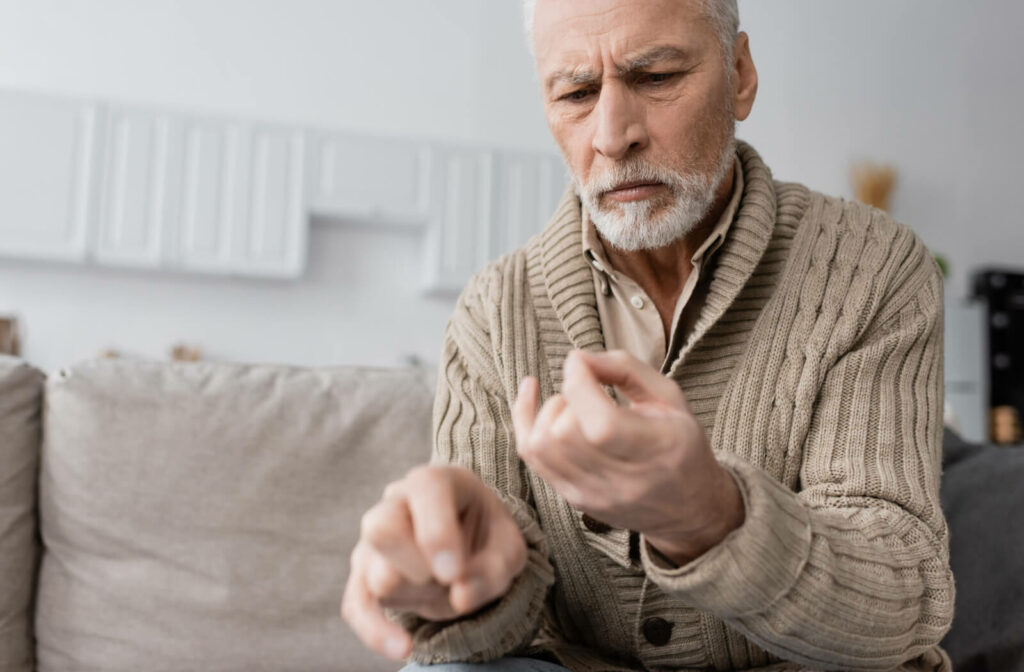The answer to this question is more complicated than you might think. Some experts believe Parkinson’s is an auto-immune disease, while others disagree.
Living with Parkinson’s can be difficult for many individuals and their families. But understanding the underlying cause of this disease can help you make informed decisions about care and lifestyle.
In this blog post, we’ll look at Parkinson’s, discuss what an auto-immune disease is, explore possible causes, and provide activities to help those living with Parkinson’s stay active and have fun. Plus, we’ll tackle the question: Is Parkinson’s an auto-immune disease? Let’s get started!
What Is Parkinson’s?
Parkinson’s is a neurodegenerative disorder that affects movement. It occurs when nerve cells in the brain die off or become damaged over time. It leads to a decline in certain hormones or chemicals like dopamine which help send signals from one part of the brain to another controlling movement.
As a result, people with Parkinson’s may experience a wide range of motor issues, including tremors, slowness of movement, stiffness or rigidity of muscles, poor balance, and problems with coordination and walking.
In addition to physical effects, people may experience non-motor symptoms such as depression, anxiety, changes in sleep patterns, or difficulty speaking.
What Is an Auto-Immune Disease?
An auto-immune disease is a type of health condition in which the body’s immune system mistakenly attacks its healthy tissue. Depending on which organs or body parts are affected can lead to various symptoms and complications.
People with auto-immune diseases often experience chronic pain, fatigue, and other symptoms that can be difficult to manage.
What Causes Parkinson’s?
Parkinson’s disease affects approximately one million people in the United States alone. Though it can be difficult to diagnose, some common factors may contribute to the onset of this condition. Let’s explore what causes Parkinson’s and how you can reduce your risk of developing it.
Genetics & Environment
Recent research suggests that genetics and environmental factors play a role in causing Parkinson’s disease. Scientists have identified several genes associated with the condition, but these only account for about 10–15% of cases.
Environmental factors such as exposure to certain toxins or chemicals may also increase the risk of developing this disorder. However, more research must be done to understand how these factors influence Parkinson’s development.

Age & Gender
Age is another factor associated with an increased risk of developing Parkinson’s disease. Most people diagnosed with the condition are over 60 years old, though younger patients have also been diagnosed.
Additionally, men are more likely than women to develop this disorder; estimates suggest that men account for two-thirds of all cases worldwide.
Lifestyle Factors
There are also lifestyle factors that may increase your risk of developing Parkinson’s disease. These include smoking cigarettes, drinking alcohol excessively, and having a diet low in antioxidants or omega-3 fatty acids.
Individuals who engage in these activities may have an increased risk of developing the condition compared to those who do not.
However, it’s important to note that lifestyle choices don’t guarantee you will get Parkinson’s, only increase your chances of developing it if other risk factors are present.
Activities to Help People with Parkinson’s Stay Active & Have Fun
Living with Parkinson’s disease can be difficult and overwhelming, but many activities can help people who have been diagnosed improve their quality of life.
These activities can range from physical to mental, and they can be both enjoyable and beneficial. Let’s explore some of the best activities for people with Parkinson’s disease.
Physical Exercise
Staying active and exercising are important to managing Parkinson’s disease. It helps keep the body active and strong to fight off any potential setbacks due to the condition.
There are many types of exercises that people with Parkinson’s can incorporate into their daily routine. Some examples include walking, biking, swimming, yoga, tai chi, dance classes, or weightlifting.
Staying physically active can also help reduce stress levels which in turn helps reduce symptoms related to the condition.
Arts & Crafts
Arts & crafts are a great way for people with Parkinson’s to express themselves creatively while staying occupied.
So many different projects can be done, such as drawing, painting, sculpting, building model airplanes or boats—the list goes on! Arts and crafts help stimulate the brain and keep it active while providing an enjoyable pastime for those living with Parkinson’s.
Board Games & Puzzles
Board games and puzzles provide a fun environment for people with Parkinson’s to interact socially while stimulating their minds.
Playing board games like Scrabble or Monopoly is a great way to spend time with family members or friends while giving the brain a workout at the same time!
Puzzles are also beneficial because they require problem-solving skills, which help keep cognitive abilities sharp even in the advanced stages of the condition.
Is Parkinson’s an Auto-Immune Disease?
Some experts believe that the body’s immune system may be responsible for the onset of Parkinson’s symptoms in some individuals.
This theory suggests that the immune system mistakenly attacks healthy cells in the brain, leading to a decrease in dopamine production and ultimately resulting in motor function issues. While some researchers have proposed this theory, there is still no definitive evidence to support it.
Experience the Lifestyle at Crescent Fields
At Crescent Fields, we’re dedicated to providing independent living and memory care options that empower people with Parkinson’s to live their best life possible. With our caring and knowledgeable staff, personalized support, and convenient amenities, you can enjoy day-to-day independence without added stress or worry.
Whether staying connected with loved ones or indulging in a little extra relaxation time, the possibilities are endless when you choose to join the community of Crescent Fields at Huntingdon Valley. Discover a world of freedom and possibility—schedule a visit today!

